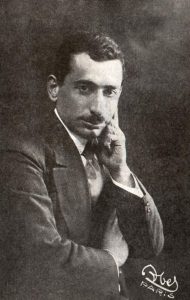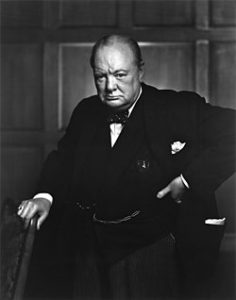Congratulations to Our Class of 2020 History Thesis Writers!
By Brendan W. Clark ’21
Editor; History Major
Congratulations to four of the History Department’s senior majors who presented the culmination of a year’s worth of research and study this past Friday!
Despite the difficulties which beset the end of their work from the coronavirus crisis, Gillian Reinhard ’20, Aidan Turek ’20, William Tjeltveit ’20, and Connor Struyk ’20 presented their research to the department’s faculty and friends via thoughtful presentations on Zoom.
Reinhard’s thesis, “Orientalist Opera: Western Perceptions of the Other in the Early Twentieth Century,” focused on the premiere of Giaccomo Puccini’s Turandot at the Royal Opera House in London during the 1920s. Reinhard relied on a variety of primary source material and newspaper coverage of the premiere and sought to examine the place and extent of Orientalism in the British imagination. Drawing on scholarship from noted British historians Robert Bickers, Sarah Cheang, and John MacKenzie, Reinhard also argued for a greater recognition of the opera as serving the imperialist ambitions of the British Empire. You can read more about Reinhard and her thesis, which were profiled by History@Trinity in November, here.
“Killing Order”: Talaat Pasha’s Telegrams and the Armenian Genocide–A Lecture by Professor Taner Akçam

By Brendan W. Clark ’21
Editor; History Major
Taner Akçam is a Professor of History and the Robert Aram, Marianne Kaloosdian, and Stephen and Marian Mugar Chair in Armenian Genocide Studies at Clark University. He was one of the earliest Turkish academics to acknowledge the Ottoman commission of the genocide.
The Armenian Club of Trinity and the History Department welcomed Professor Taner Akçam, Professor of History and the Robert Aram, Marianne Kaloosdian, and Stephen and Marian Mugar Chair in Armenian Genocide Studies at Clark University to Trinity on Monday, March 19th. Professor Akçam spoke on his newest book, Killing Orders: Talat Pasha’s Telegrams and the Armenian Genocide. He discussed the significance of the telegrams and their role in affirming the Ottoman governments involvement in many of the events underscoring the Ottoman Empire’s perpetration of the Armenian Genocide.
Akçam began by addressing the continuing denials of the Turkish government, who deny the occurrence of the Armenian Genocide itself. This argument, argued Akçam, rests on the supposition that there was never an official decision by Ottoman authorities to exterminate Armenians. To augment their claims, Akçam cited the two strategies pursued by the deniers: that they have consistently hidden or destroyed the bulk of documentary evidence and that they continue to deny the existence of certain available documents.
“Great Pleasure and Advantage”: Richard Toye and the Parliamentary Oratory of the Rt. Hon. Sir Winston Churchill
By Brendan W. Clark ’21
Editor; History Major

The Trinity College History Department had the pleasure of receiving a visit from Richard Toye, Professor and Department Head of History at the University of Exeter, on Thursday, February 22. Professor Toye is a historian of Churchill and has a distinguished career, having written a number of publications including Lloyd George and Churchill: Rivals for Greatness, Churchill’s Empire: The World That Made Him and the World He Made, The Roar of the Lion: The Untold Story of Churchill’s World War II Speeches, and Rhetoric: A Very Short Introduction.
In his lecture, Toye challenged us to consider other factors that influenced the decisions of Churchill’s rhetoric. One of the first factors Toye examined was the structure of the House of Commons chamber itself. In 1941, the house was bombed during the Blitz and a fervor developed over whether or not the chamber should be reconstructed. Toye described the importance of the original design to Churchill, noting that Churchill found the American rotunda design “fatal to democracy.” The intimacy of the chamber and its ability to facilitate the conversational style, which Churchill himself advanced, was critical to the Parliamentary tradition within Britain.
Bankwitz Lecture: “From Privy to the Statistical Archive”
Editor; History Major
The annual C.F. Bankwitz Lecture this year featured Barbara Ann Naddeo from the City College of New York presenting “From the Privy to the Statistical Archive: Political Information, Science, and the Formation of the Territorial State in the Age of Enlightenment, 1700—1815.”
Herein, I examine Professor Naddeo’s arguments regarding Galanti’s significance in his time whereas my colleague Ms. Meagher will touch upon Galanti’s role as a source of historical information.
Naddeo’s treatment of the implications and novelty of famed Italian economist and geographer Giuseppe Maria Galanti (1743–1806), who worked in the Kingdom of Naples during the aforementioned period, proved enlightening especially in its espousal of concepts on epistemology.
Bankwitz Lecture: Galanti as a Historical Source
Editor; History Major
On Thursday, November 16, the Trinity College History Department held its Annual Philip C. F. Bankwitz Lecture. This year’s speaker was Professor Barbara Ann Naddeo from the City College of New York who gave a lecture entitled, “From The Privy To The Statistical Archive.” In this lecture, Professor Naddeo cited Giuseppe Maria Galanti in making her argument that statistical writings in late eighteenth century Italy played a large role in the establishment of Italy as a modern political player. Before she made her argument, Professor Naddeo went into depth on the importance of Galanti’s works as a historical source. Giuseppe Maria Galanti was born in 1743 and died in 1806, Having lived his life in the Kingdom of Naples in Italy. During his lifetime he published five volumes of a text called The Geographical and Political Description of the Sicilies. The work includes census-like information about the region at the time as well as detailed maps. The census information translates to political statistics both then and now. The information indicates what the people of the time were like both professionally and socially as well as what the rulers of the time were interested in knowing about their people since it is they who ordered the gathering of many the statistics Galanti uses.
(more…)
Lecture Recap: African Americans & Classical Education after the Civil War
By Tess Meagher ’20
Editor; History Major
In coordination with the History Department, the Trinity College Classics department hosted its annual Moore Lecture on November Ninth during common hour. The lecture, entitled “African American Intellectuals and the Study of Ancient Greek After the Civil War,” was given by guest lecturer Michele Valerie Ronnick. The lecture dealt specifically with historical African American scholars, mostly during the era of 1850-1950, who had an impact on the study of classics and/or on the way African Americans were educated in classics during this time period.
Professor Ronnick began the talk with an explanation of the importance of Greek and Latin in nineteenth-century western culture, specifically the American education system. She said that beginning around the same time as the American Revolution, there was a debate as to how useful the prerequisite of Greek and Latin for further education was. Among the founding fathers, there was a group of anti-classicists who said there was no place in the new republic for the study of dead languages. However, this group was in disagreement with other founding fathers who believed in the studies of the classics as necessary. The disagreement wasn’t resolved here and continued to affect the education system until the twentieth century.
(more…)
Mead Lecture: “The Reinventions of Tradition: Writing Damascus in the Long 16th Century”
I found Professor Sadji’s lecture and work The Barber of Damascus to be very dense and informative. In her lecture, Professor Sadji examines the city of Damascus in the 17th century, which she proves to be a thriving cosmopolitan and a far cry from the war-torn city we know today. One of the five major cities in the Ottoman Empire and a provincial capital, Damascus was a display of the phenomenon she calls “exhibitionism” and was also a microcosm of the Empire as a whole, serving as the departure point for pilgrimages to Mecca. Her book, of which I read the Introduction and first two chapters, detailed the existence of a Damascene barber in the 17th century. His personal diary is fascinating because of the diversity of his interactions. Peasants, saints, commoners, and elites came to the shop and the barber’s account provides a refreshing change of voice in history. As Professor Sadji mentioned in her lecture, history is written by the victors, it is rare to see the oppressed have a voice. This is a theme that is often brought to light in our class, the National Party and its authoritarian control over the school system and the recording of history, subjected black South Africans and silenced their voice. Another interesting point in her book was that the barber viewed his society as a clash between the tyrannical rich and the oppressed poor. – Dan Marini, History, Class of 2018
(more…)
A Response to the 2017 Wassong Lecture: “Trigger Crimes & Social Progress: The Tragedy-Outrage-Reform Dynamic in America”
By Callie Prince (History ’17)

This past week I attended the 2017 Wassong Lecture in European and American Art, Culture, and History, a lecture organized every year by the interdisciplinary studies department. I was excited to hear the lecture from Paul H. Robinson who is a Professor at the University of Pennsylvania Law School. His long list of accomplishments would extend beyond the length of this post, as he has been prolific and diversified in his work. The topic of his lecture was “Trigger Crimes & Social Progress: The Tragedy-Outrage-Reform Dynamic in America”. A brief synopsis written by Robinson describing the work behind his lecture, posed the main question as, “Why do some tragedies produce broad outrage while others, often of a very similar nature, do not? Why do some outrages produce reform while others, often with greater claims to outrageousness, do not?”
(more…)
History, Identity, and Traveling: A Reflection on 2017’s McGill Lecturer, Santiago Gamboa
Chelsey Crabbe (History ‘17)

In his lecture, “The Art of Narration and Travel Writing (a Latin American Writer in India)”,weaved an inspiring tale about the realities of his profession as both an individual and a Latin American writer by specifically focusing on his tales of living in India. Gamboa has written eight novels amongst other works, mostly in Spanish and translated into a variety of languages. The writer has also acted a Columbia diplomat at UNESCO in Paris as well as to the Columbian Embassy in India. Obviously well-accomplished, Santiago Gamboa impressed me not only with his accolades but his grip on the pulse of the world, understanding the humanity within each individual, no matter their country of origin.
(more…)





